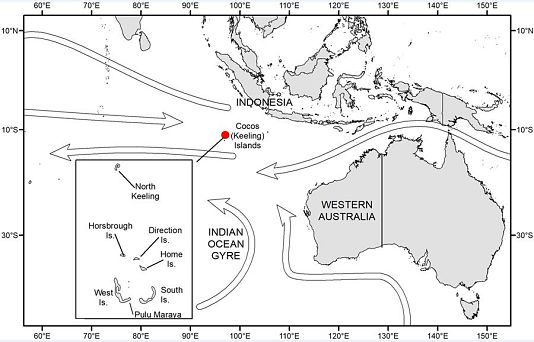May 19: The tropical beaches of the Cocos (Keeling) Islands (CIK) in the Indian Ocean are now home to an estimated 373,000 toothbrushes and 977,000 shoes.
This amount of waste is equivalent to what the island community, with a population of fewer than 600 people, would produce in around 4,000 years.
Located 2,100 km off the coast of northwest Australia, CIK now has an estimated 414 million items of debris weighing 238 tonnes present on the island group. Around 25% of this debris was classified as disposable plastics, according to a report by Nature scientific journal.
More than just shoes


Location of Cocos (Keeling) Islands, AustraliaScientific Reportsvolume 9, Article number: 7102 (2019)
The report states that once in the ocean, plastic items exposed to waves and sunlight begin to fragment into small particles that linger for decades, perhaps even centuries.
The report warns that it is not possible to remove the significant quantities of plastic already in the ocean, making the prevention of new items entering the sea "critically important."
According to its authors, the real extent of the problem is not even seen on the surface as approximately 93% of the debris on the island is buried 10cm from the surface. Large amounts of rubbish were also found in the island group's forested areas.
Around 40% of plastic items worldwide become waste in the same year they are produced, which has led to an astronomical 5.25 trillion items estimated to be in the ocean — this would mean there are now more pieces of plastic in the ocean then there are stars in the Milky Way.
Scientists involved in the project blame humanity's excessive as well as unrelenting demand for plastics, coupled with ineffective policy and waste management for the myriad negative effects on marine, freshwater, and terrestrial environments, not only seen on CIK but across the globe.







































